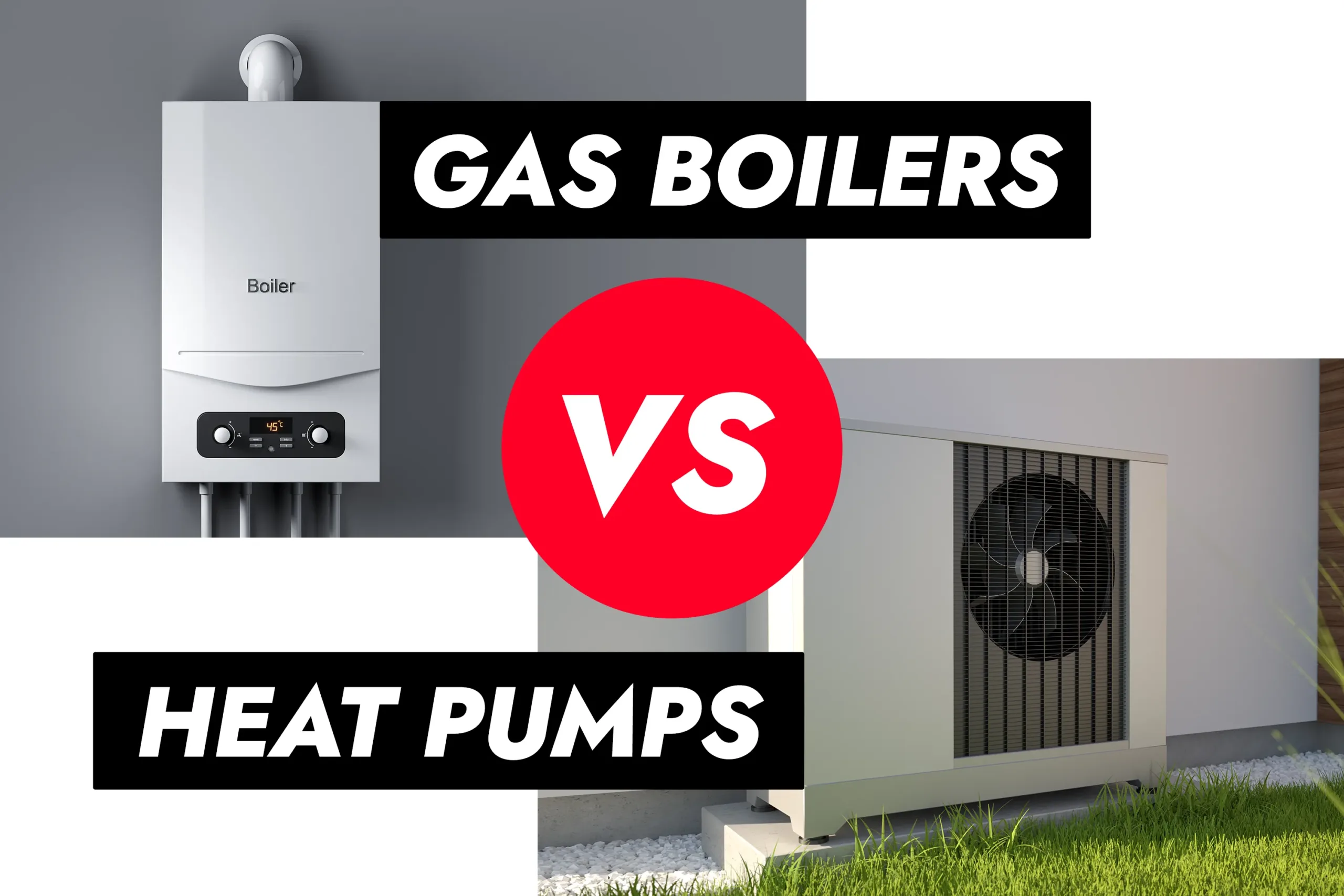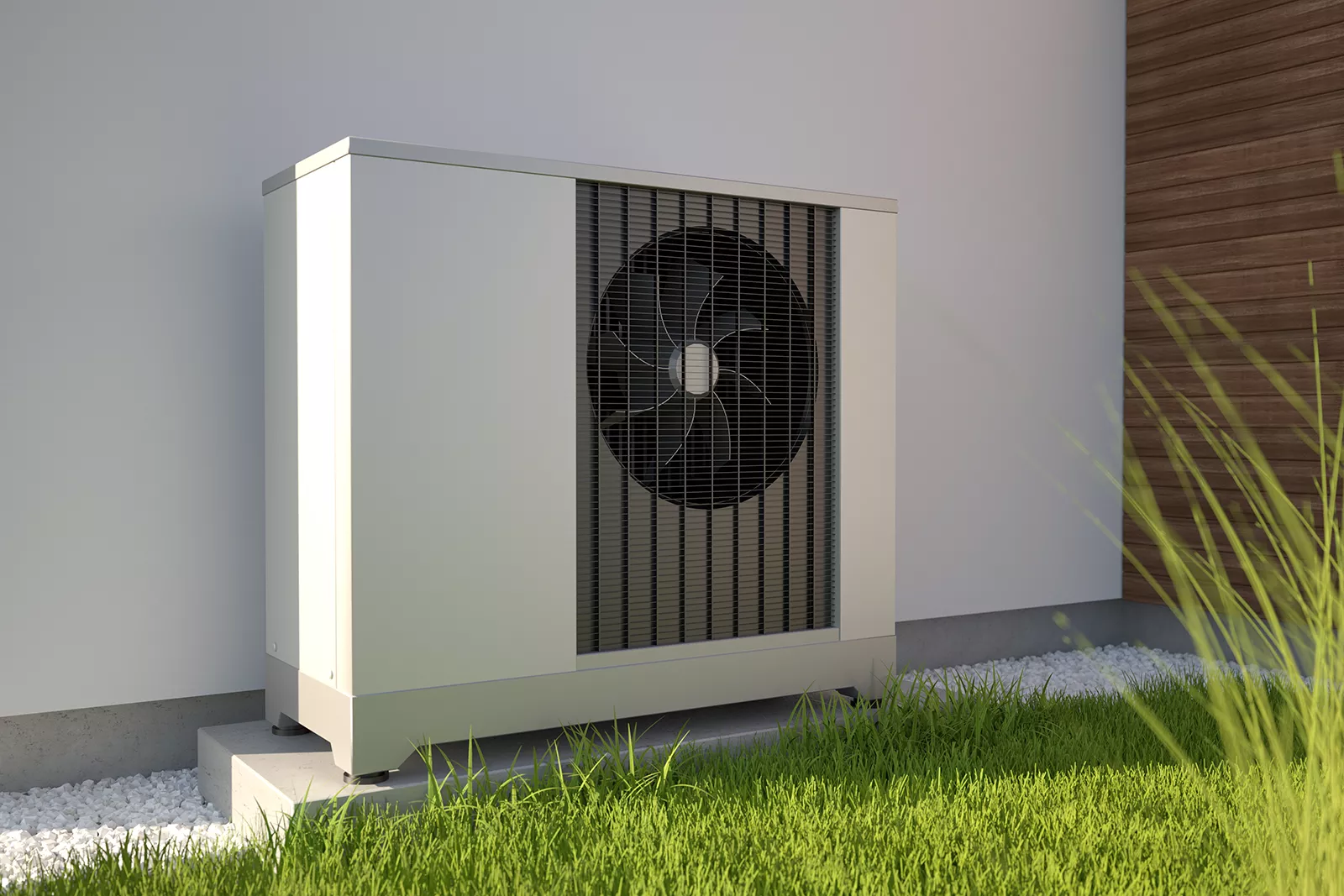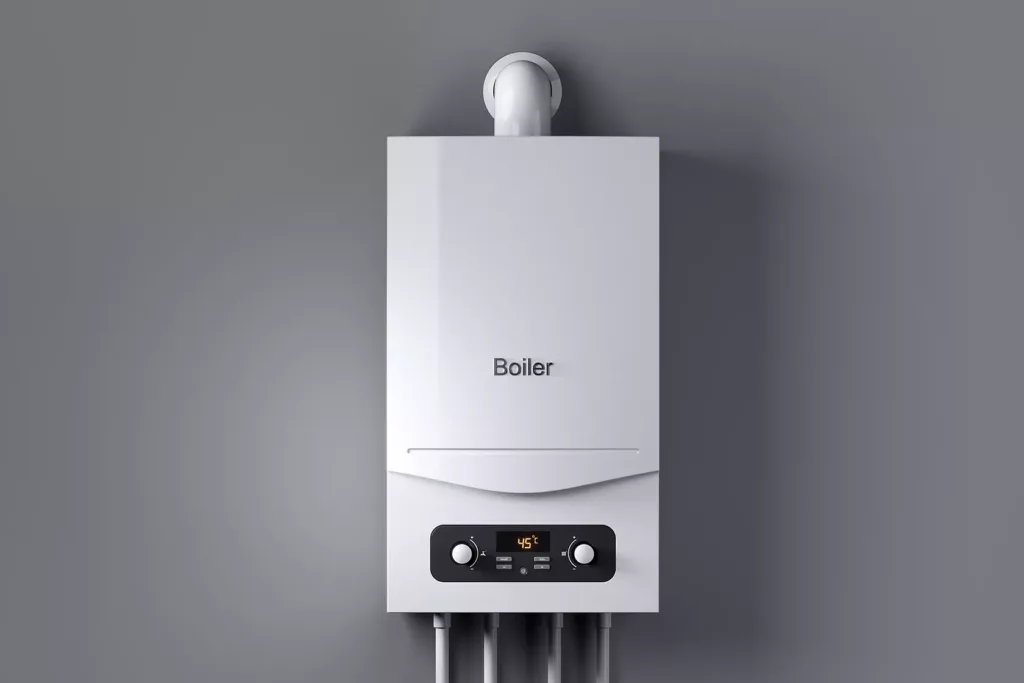Gas Boilers vs Heat Pumps

Do you stick with your trusty and reliable gas boiler or do you move to a new, sustainable heat pump for your heat and hot water?
At Emergency Cover we can help you understand the benefits of both, and how important it is to have home boiler cover for whichever system you choose.
Should you stick with a gas boiler or switch to a heat pump?
Gas boilers v heat pumps is the home heating debate that is raging across the UK, as a widespread commitment to move to renewable energy sources battles with harsh economic forces and the reality of increasing energy bills.
In short, will we see savings from moving to a heat pump?
How reliable are they?
And what are the upfront costs?
Heat pumps are not a new technology
Most people understand why we need to develop and embrace renewable energy and reduce our climate impact. Low carbon fuels are undoubtedly our future and the UK Government also understands that renewable sources need to be the main way we heat our homes in the future. There is a commitment to have 50% of UK homes heated by heat pumps by 2050 and to have 600,000 installations per year in the next five years. In 2023 there were 72,000 heat pumps installed in the UK.
Heat pumps are not a new technology, however, in fact they use the same principle as a fridge, freezer or air conditioning unit. A traditional complaint when comparing a gas boiler versus a heat pump is that gas boilers produce more heat, but developments have taken place in recent years to improve the performance of heat pumps and make them a viable alternative to the traditional gas boiler.
We have put together a handy comparison table to help you understand the pros and cons of gas boilers vs heat pumps.
Gas Boilers vs Heat Pumps: A Comparison Table
| Gas Boiler | Heat Pump | |
| How does it work? | A gas boiler burns gas to produce hot water in a closed loop system, which is then circulated to radiators by an electric pump. Returned hot water is continually reheated | A heat pump uses refrigerant to collect heat from the air or ground, and uses a cycle of compression and expansion to concentrate heat energy and an electric pump to circulate hot water to radiators in the same way as a gas boiler |
| Do you need a storage tank? | No, a gas boiler produces instant heat | Yes, heat is only produced gradually so a storage tank is needed to retain sufficient hot water for use in the home |
| What is the environmental impact? | A gas boiler burns natural gas and also uses electricity to power the system | A heat pump uses electricity to power the system and recent years have seen a new refrigerant developed (R290) which is more environmentally-friendly to dispose of and is much more energy-efficient |
| What is the cost for installation? | A new gas boiler will cost between £500 to £4500 to buy and install | A new heat pump costs between £14,000 and £19,000, but a Boiler Upgrade Scheme (BUS) is available to help with £7500 towards that cost |
| Does the system use radiators? | Yes | Yes |
| What is the heat efficiency? | Modern boilers are around 92-94% efficient, but older boilers are much less efficient | Heat pumps are up to three times more efficient than gas boilers, ie. you achieve more heat output with less energy input. One unit of energy results in between 2 to 4.5 units of heat, meaning heat pumps have an efficiency of 200 to 450% |
| Is the system noisy? | You can hear the gas burning with a gas boiler and older systems do tend to be more noisy, particularly if they are not properly maintained | No. A heat pump operates in the same way as a fridge or freezer and hence emits the same kind of noise levels |
| What heat levels are produced? | Gas boilers produce a flow temperature (the temperature of water received by the radiators) of around 60°C | Traditionally, heat pumps only generated around 50°C, but the new R290 refrigerant that is widely used in modern heat pumps can generate over 70°C, and using less energy than older refrigerants now being phased out |
Understanding the gas boiler vs heat pump comparison
When studying the above comparisons it is important to understand some of the context in order to get a fully rounded picture. For example:
- Heat generated – Gas boilers provide quick boosts of heat on demand, but a heat pump produces a more gentle heat over a longer period, so over the course of a day you will get a more comfortable, long-lasting heat with a heat pump and it will use less energy to achieve this.
- Operating efficiency – Generally speaking, heat pumps use more electricity than a gas boiler, but it is important to note that heat pumps retain their renewable benefits because more than 40% of national grid electricity comes from renewable sources. Also, cost-wise, you can run a heat pump overnight on a cheaper electricity tariff and store the hot water in the storage tank.
- Heat loss survey – Before considering a heat pump installation it is important that you carry out a thorough heat loss survey of your home to identify whether you are getting the best thermal benefits. A heat pump will be most efficient in homes where heat loss is minimal, ie. with good insulation of roofs, walls and floors. There are grants available to help with the cost of this. A home survey should also consider where the storage cylinder can be located, because this can also impact on the operating efficiency. If the cylinder has to be stored outside or in a loft space, this will be cold/unheated and hence will reduce the efficiency of the system. To get the most efficient results from a heat pump system, you need to operate it in optimum conditions, ie. a well insulated home.
Gas boiler cover with Emergency Cover
Whether you decide on a gas boiler or a heat pump for your home heating, you can safeguard against breakdown, energy inefficiency and uncomfortable living with a boiler cover plan from Emergency Cover, so contact our team to discuss the right plan for you today.






